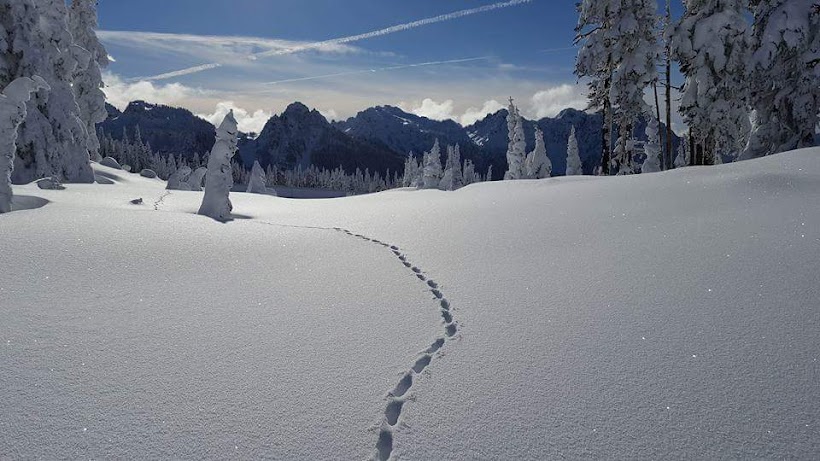The cloud cover seemed low in the arctic. It gave me the impression of being on top of the world, so high that even the sky reached the earth. I stood on a hill surrounded by dwarfed pines and lichen in Denali National Park. The mountain itself was shrouded in clouds. I would not see it that day. What I would see is a rolling wilderness that went on for 100 miles in any direction--that feeling of solitude so profound you can eat it for breakfast. Down in the valley before me, a bull moose stood torso deep in a lake dipping his head under the water in search for sustenance.
My mind was, as it is for many who venture out of their vehicles in the Alaskan wilderness, was the Alaskan grizzly. Majestic. Powerful. Even romanticized. You couldn't help walking in this country without thinking about the bear. For here is their home. They live everyday in the solitude I write about. Here in Denali, their livelihood is relatively unchallenged.
But elsewhere in Alaska, and almost the entire lower 48, they are challenged to the point of being endangered. Considering that at one time, this majestic beast once roamed nearly all of America, and even dwelt in Mexico. Today, they live in pockets of Washington, Idaho, Montana and Wyoming. South of solitude. Their only true stronghold is in Canada and Alaska.
And I have hiked in both Alaska and south of solitude. There's something different about walking in the wilds of Alaska and then returning to, say, the Cascades, the Sierra Nevadas, or even much of the Rockies. For many, south of solitude is wild, deep and impenetrable. For me, every time I walk in what once was grizzly country, but hasn't had a grizzly for over 100 years, something is missing. It almost feels like there is no solitude there. It feels like I can turn around at any moment and see another person, a town, or a highway just past the trailhead. It's a terrible feeling to undergo for someone who'd spent a lot of time in the mountains prior to moving to Alaska.
Where there is wilderness left in Alaska, it's dwindling, just as it is everywhere in our human controlled world. At one time, humans lived in harmony with all the animals. Today, it's about development, revenue, and recreation. But the more we develop, the more money we make from that development, the less solitude any of us will feel in the back country. One day we may return to the wild places to find the grizzly completely gone. There's a sadness to that thought. For there too, even in Alaska, will be south of solitude.

No comments:
Post a Comment